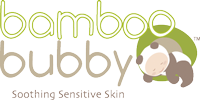Navigating Eczema: A Mother's Tale of Unseen Struggles and Triumphs in Allergy and Intolerance
Posted by Kelly Northey on 15th Dec 2023

Embarking on the journey of parenthood is as much blissful as it can be challenging, especially when faced with the unexpected complexities of allergies or intolerances in your little one. Breastfeeding and the profound bond between mother and child can be severely compromised when allergies or intolerances become part of the equation.
In this blog post, I want to share my own story of the challenges I faced while trying to care for my baby, who suffered from one of the most common intolerances seen in babies - milk protein intolerance.
My struggle with establishing breastfeeding is one I talk about a lot and my 'why' behind founding my other lactation support product business over at The Yummy Mummy Food Company (you can read more about that part of my journey here). However, what isn't talked about enough is what to do when your baby starts showing symptoms of allergies and intolerances.
This is not something anyone explained could happen during our breastfeeding journey or after switching to formula. But when we did work it out, it explained the months of frustration, upset, and bottle-throwing antics my baby displayed from birth.
Understanding the Difference:
Before delving into the world of food allergies and intolerances, it's crucial to distinguish between the two.
Food allergies involve the immune system reacting to specific proteins in foods, triggering symptoms ranging from mild hives to severe anaphylaxis. On the other hand, food intolerances result in digestive discomfort, such as bloating or diarrhea, often due to the body's inability to properly digest certain substances.
Common Culprits:
Several common foods are known to trigger allergies and intolerances in babies. For allergies, top offenders include cow's milk, eggs, peanuts, tree nuts, soy, wheat, and fish. Lactose found in milk and dairy products, and gluten present in wheat and related grains are frequent causes of intolerances.
Symptoms to Watch For:
Recognizing the symptoms of food allergies and intolerances is crucial for early intervention. Keep an eye out for signs such as:
Allergies:
- Hives or rash
- Swelling, especially around the face
- Difficulty breathing or wheezing
- Vomiting or diarrhea
- Persistent crying or irritability
Intolerances:
- Upset stomach
- Diarrhea or constipation
- Gas and bloating
- Skin rashes, such as eczema
In my baby's case, we had no idea that the 'difficult drinker' baby who would violently push bottles away was actually trying to tell us it didn't agree with him until we sought solutions for the eczema covering his body. A GP suggested it could be an allergic reaction, leading us to a pediatric allergy testing clinic where tests revealed a cow milk protein intolerance.
I highly recommend insisting on a referral to a similar allergy clinic if you suspect allergies or intolerances in your baby. For us, it eliminated the guesswork.
Seeking Professional Guidance:
If you suspect your baby may have a food allergy or intolerance, seeking professional guidance is paramount. Your pediatrician may recommend diagnostic tests, such as skin prick tests or blood tests, to identify allergens. For intolerances, an elimination diet under the supervision of a healthcare professional can help pinpoint problematic foods.
Managing Allergies and Intolerances:
Managing food allergies and intolerances in babies involves careful attention to their diet, whether you are breastfeeding or formula feeding. Neither is an easy option.
In our case, my postpartum health was poor, and we had already switched to formula feeding when our son's eczema seemed to worsen. Once we identified milk protein as the cause, we were prescribed a special (and hugely expensive) allergy formula, which he refused to drink. After trying every other allergy-friendly formula, I reached for the only one we hadn't tried - goat milk formula.
It was like having a different child from the moment we made up the first bottle. He remained a goat milk drinker until well into early primary school, slowly growing out of the intolerance to cow milk.
Read more about our goats milk journey here.
However, in the case of allergies rather than intolerances, strict avoidance of the allergen is key. For intolerances, adjusting the diet to eliminate the problematic food while ensuring adequate nutrition is essential.
As a mum who dealt with allergies and eczema, I'm passionate about helping parents navigate challenges presented by both of these in their little ones.
If you'd like more information about how to help your baby or child's eczema, please click here to download my FREE E-GUIDE 'Breaking the Itch-Scratch-Wake Cycle'.
GRAB YOUR COPY NOW!


